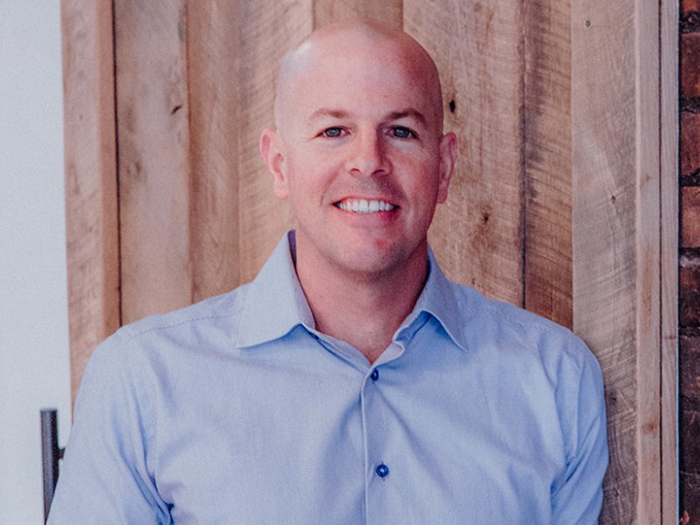3 Ways Emotional Intelligence Helps You Succeed in the Insurance Workplace

In a recent podcast, Deloitte Chief Well-Being Officer Jen Fisher discussed the science of emotions with Dr. Dacher Keltner, a professor of psychology at the University of California, Berkeley. The two also discussed why emotional intelligence matters in the workplace.
While it’s true that any organization can benefit from Keltner’s perspective on the role of emotions at work, his lessons are especially pertinent to the insurance industry. Here’s why insurance professionals should learn and practice emotional intelligence:
1) Insurance Is a People Business
Emotional intelligence, or EI, comprises a set of skills including ability to regulate one’s own emotions, accurately perceive others’ emotions, listen attentively, and show empathy. Emotional intelligence requires adeptness at interpersonal communication and relationship building.
As any insurance executive would attest, despite the rising role of technology, the business remains at its core a people business. Clear, proactive communication, trust and loyalty are keys to success. Relationships matter. And emotions, said Keltner, are a natural part of both work and relationships.
“I remember 26 years ago going to give a talk at Harvard … and somebody said, ‘emotions, we should just check them at the door. They don’t have a place in work.’ Now, we are in a much different place where people realize work is emotional, relationships are emotional,” Keltner said.
A high level of EI matters especially during a loss. Having to file a claim is often a stressful and emotional time for a company. Management is struggling to recoup a financial loss, get back the business back on its feet and back in the flow. Empathy is critical to make a client feel comforted and reassured.
Ability to read and react to emotions also benefits anyone present at discussions around contract terms and pricing.
“Look and listen to other people’s emotions, and if you are asking good questions and taking other people in, you will know more about how to negotiate. You will know more how to collaborate,” Keltner said.
2) Emotional Intelligence Supports Diversity and Inclusion.
The primary mission of emotional intelligence is to allow people to work together more harmoniously and productively. Being able to empathize and communicate effectively with people from different backgrounds and experiences naturally supports diversity and inclusion efforts.
As the insurance industry makes strides toward greater D&I, its time to shed any lingering maxims that emotions should be left at home. According to Keltner, the notion that emotion is irrational and has no place at work likely “comes from old cultural biases – probably gender biases – when work was more male. There may have been this suspicion of the emotions because that felt more female.”
However, learning how to read, regulate and communicate emotions will become increasingly important and workplaces become more diverse.
“There are more women, it’s more multicultural, it’s more team-oriented… anytime you try to get a bunch of different people together to do something, you are going to have emotion,” Keltner said.
With more women entering senior leadership roles in insurance, there will likely be greater emphasis on emotional intelligence. Research suggests that high EI is a more important leadership skill than high IQ or technical ability. According to a study conducted by global organizational consulting firm Korn Ferry, “women are better at using soft skills crucial for effective leadership and superior business performance.”
3) Emotional Intelligence Drives Innovation.
Emotional intelligence may be the key underlying factor explaining why greater diversity often drives greater creativity. According to Keltner, the skill of listening attentively and being able to understand different perspectives is often a first step of innovation.
Listening to others’ complaints, ideas and perspectives often highlights opportunities where innovation can solve a problem. In an industry that is constantly under pressure to innovate, practicing this emotional skill could help move companies forward.
Researchers at the Australia-based Emotional Intelligence Institute wrote in a recent report that “Emotional recognition and expression, emotional management and understanding emotions of others were positively related to the ability to be innovative and creative in the workplace.”
The report also states that innovation is center to organizations’ ability to ‘remain competitive in complex and changing environments,” and that they “must have employees who are creative on behalf of the organization.”
Technical skill still matters, but in order to foster creativity, organizations must create environments where expression of new ideas is accepted. According to Daniel Goleman, the psychologist who first coined the term “emotional intelligence” in the early 1990s, “People are most free to offer their most innovative (and sometimes whacky) ideas and insights when there is an atmosphere of high trust. If people are afraid of ridicule, put-downs or dismissals, they keep their ideas to themselves.” &









